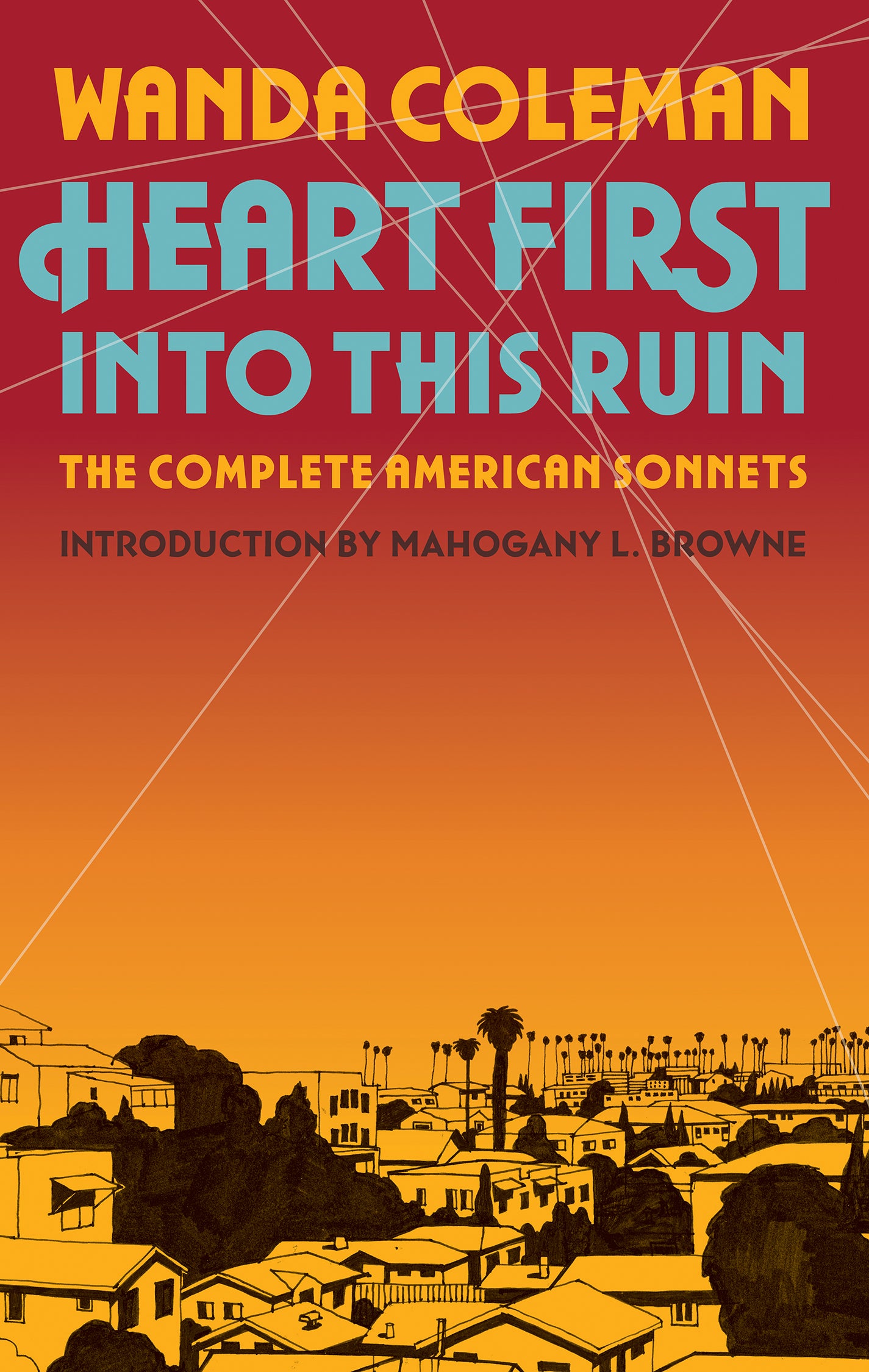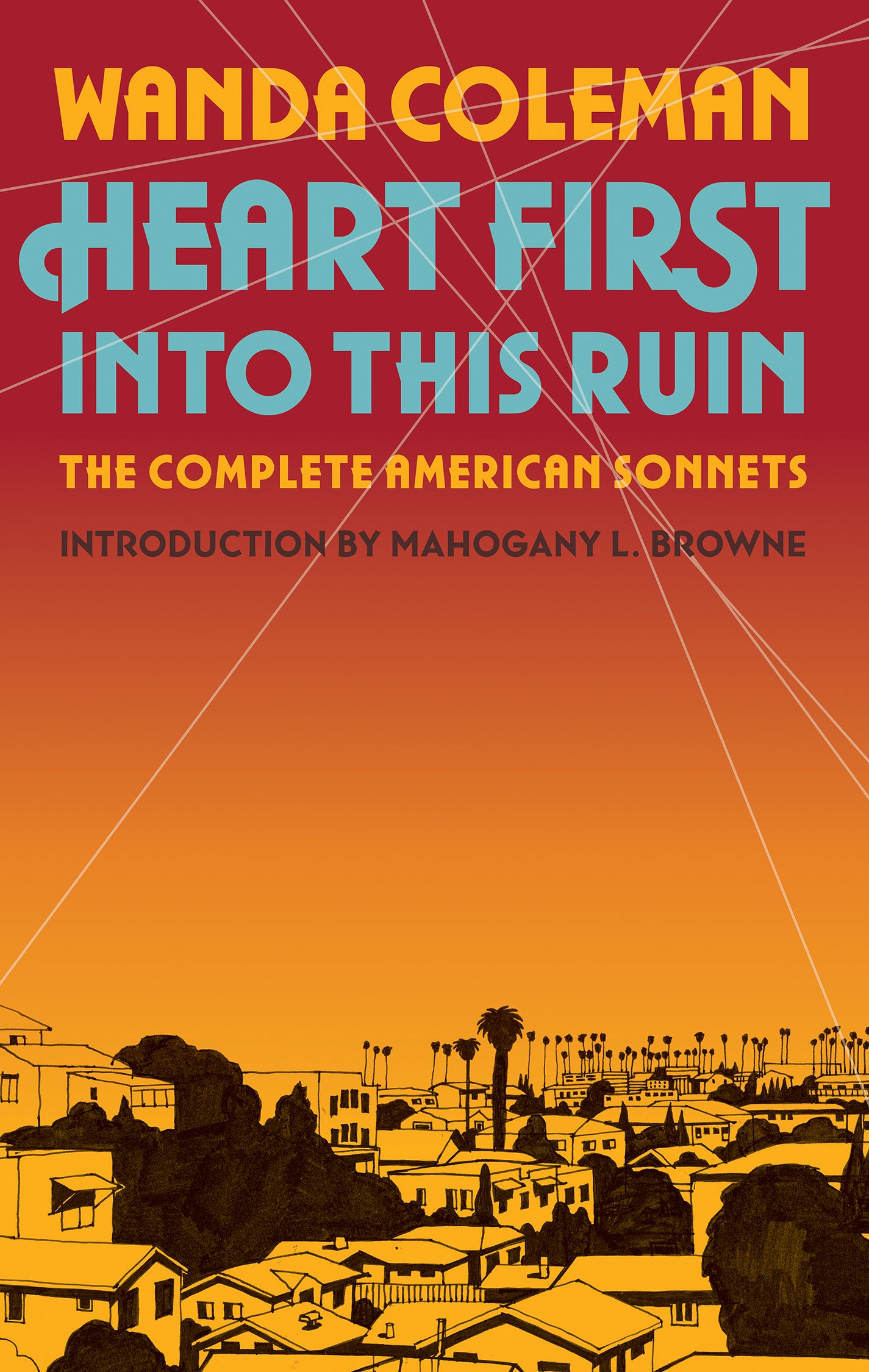
“Wanda Coleman is not just wickedly wise, she is transcendent.”—Washington Post
The first complete collection of Wanda Coleman’s original and inventive sonnets. Long regarded as among her finest work, these one hundred poems give voice to loving passions, social outrage, and hard-earned wisdom.
Wanda Coleman was a beat-up, broke Black woman who wrote with anger, humor, and ruthless intelligence: “to know, i must survive myself,” she wrote in “American Sonnet 7.” A poet of the people, she created the experimental “American Sonnet” form and published them between 1986 and 2001. The form inspired countless others, from Terrance Hayes to Billy Collins.
Drawn from life’s particulars, Coleman’s art is timeless and universal. In “American Sonnet 61” she writes:
reaching down into my griot bag
of womanish wisdom and wily
social commentary, i come up with bricks
with which to either reconstruct
the past or deconstruct a head....
from the infinite alphabet of afroblues
intertwinings, i cull apocalyptic visions
(the details and lovers entirely real)
and articulate my voyage beyond that
point where self disappears
These one hundred sonnets—borne from influences as diverse as Huey P. Newton and Herman Melville, Amiri Baraka and Robert Duncan—tell Coleman’s own tale, as well as the story of Black and white America. From “American Sonnet 2”:
towards the cruel attentions of violent opiates
as towards the fatal fickleness of artistic rain
towards the locusts of social impotence itself
i see myself thrown heart first into this ruin
not for any crime
but being
This is a collection for anyone who values the power of words to name what is real and what is possible in a unique, questioning, and questing mind.
CRITICAL PRAISE for Heart First Into This Ruin
“Essential . . . dizzies with imagination and Coleman’s ever-present wit . . . an indispensable look at one of the most important and surprising voices in American poetry.” —Publishers Weekly (Starred Review)
“Coleman’s shocking, sensuous American Sonnets . . . march to their own drum, rejecting traditional meters and rhyme-schemes, constrained instead by rules the poet has set.” —The Telegraph (U.K.)
“Coleman tries to tailor each poem’s meter . . . she does very well, covering family, erotic love, work, chronic poverty, racism, and the damned knowledge that she is better than what she receives from American society.” —The Book Beat
MORE PRAISE FOR WANDA COLEMAN
“Fantastically entertaining and deeply engaging...potent distillations of creative rage, social critique, and subversive wit.” —Washington Post
“Terrifying and fearlessly inventive.” —New York Times
“Wanda Coleman remains among the most essential writers Los Angeles has produced.” —L.A. Times


